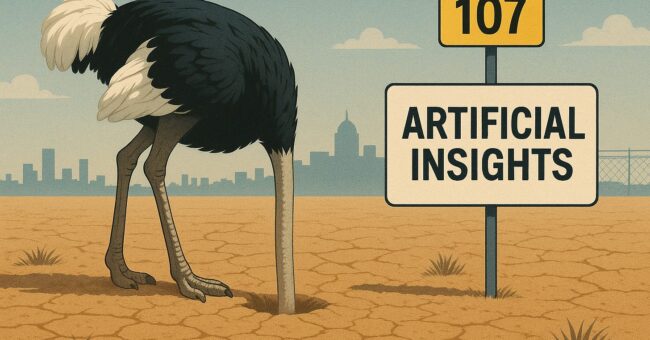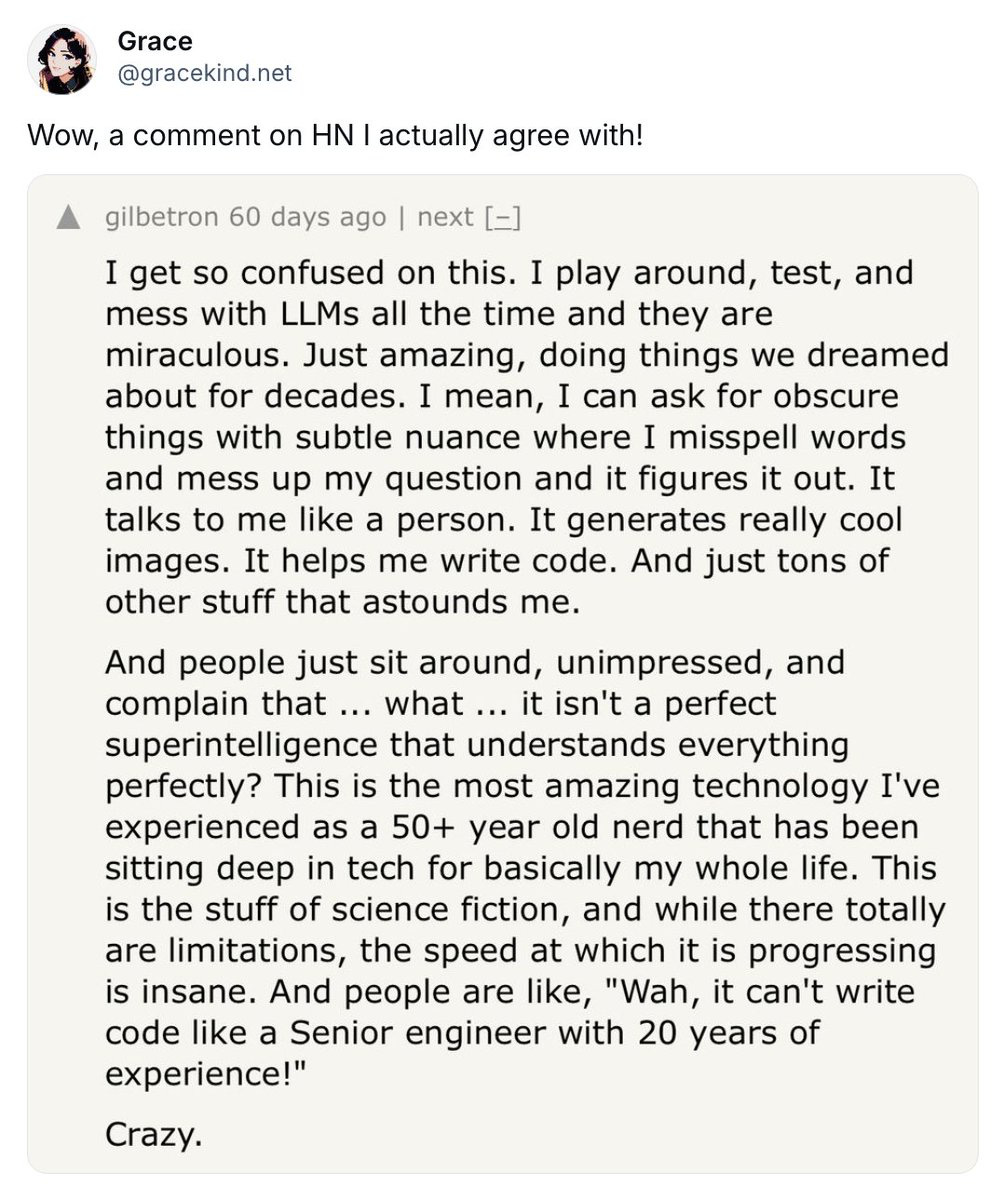
Happy Monday from a sunny London where SXSW is in full swing.
This week’s cognitive dissonance (based on some of the links below):
MIT’s Daron Acemoglu peels back the hype: despite fireworks, today’s AI wave automates ~5% of tasks, nudging global GDP by a lonely 1% over the coming decade.
His data show no imminent extinction of occupations, only a slow drip of efficiency in well-mapped office routines. The missing piece? Applications that truly create novel goods and services. Until CEOs pair models with tacit human judgment, AI remains an incremental tool, not an economic earthquake.
Meanwhile, on Hard Fork, Kevin Roose and Casey Newton survey the trenches and see blood on the floor: agentic systems coding for hours at end, “AI-first” mandates, and unemployment for recent U.S. grads climbing to 6%. Anthropic’s leadership claims that half of entry-level white-collar jobs could vanish within five years.
Two realities are colliding: system-level drag – slow diffusion, regulatory headwinds, integration headaches – meets company-level shock, where managers wield AI co-pilots to reduce costs and skip apprenticeships, hollowing out the talent pipeline.
Strategic inversions required:
-
Flip the metric from cost saved to value created. Treat models as market-expanding partners, not redundancy bludgeons.
-
Design human-in-the-loop workflows first. Tacit knowledge is the moat; encode it, don’t erase it.
-
Build AI-literate middle layers. If junior roles evaporate, train people to orchestrate agents and curate data pipelines.
-
Prototype new services for aging populations, climate adaptation, financial inclusion. The largest GDP delta lies in the needs we still ignore.
Expect a bifurcated labor market where “agent wranglers” – individuals fluent in prompt engineering, domain context, and quality assurance – command premiums, while generic knowledge work commoditizes. Universities that embed AI-based practices into curricula will define the next cohort of high-leverage talent.
AI’s macro impact may look tame on spreadsheets, yet its micro-level reallocations are reshaping the ladder of opportunity.
Reconciling the two narratives is now the core challenge for leaders – and for anyone mapping their own future of work.
Until next week,
MZ
Is AI discovered or invented? (25 min)
Surprisingly insightful interview by the WSJ with OpenAI’s COO Brad Lightcap (30 min)
Ambient devices on the horizon.
AI vs. the Economy
MIT econ heavyweight Daron Acemoglu slices through AI euphoria, estimating that only 5 % of today’s tasks will be profitably automated this decade, nudging global GDP by a mere 1 %.
Hard Fork podcast post-Google I/O
This is Casey describing last year’s Apple Intelligence announcements, which never materialized:
It really is amazing how looking back last year’s WWDC was just like a movie about what a competent AI company might have done in an alternate future. It had very little bearing on our reality, but it was admittedly an interesting set of proposals.
Shots fired.
Quick Links
-
I love these Reddit threads about unexpected uses for LLMs. The use cases are broad and all over the space. Health, personal style, learning new things, cooking skills, recipe ideas, file conversions, therapy, conflict resolution & much more.
-
Mary Meeker’s Trend report on AI. At least one person printed and read the whole report so you don’t have to. Another good summary on Twitter.
-
This is so cool – interactive generative videos unlike anything I’ve ever seen. Experience.Odyssey.World – Explainer.
-
Ben Evans’ yearly tech keynote presentation was recently updated.
If Artificial Insights makes sense to you, please help us out by:
-
📧 Subscribing to the weekly newsletter on Substack.
-
💬 Joining our WhatsApp group.
-
📥 Following the weekly newsletter on LinkedIn.
-
🦄 Sharing the newsletter on your socials.
Artificial Insights is written by Michell Zappa, CEO and founder of Envisioning, a technology research institute.





